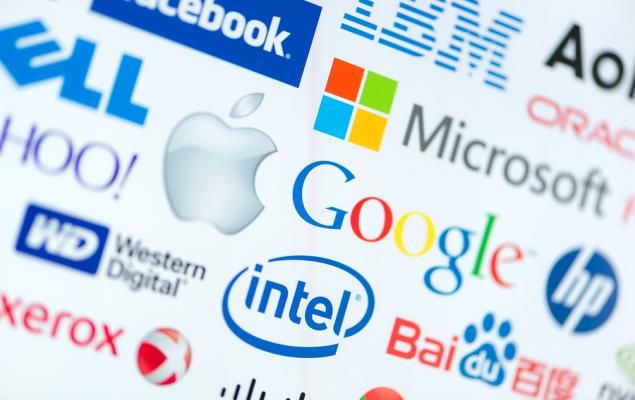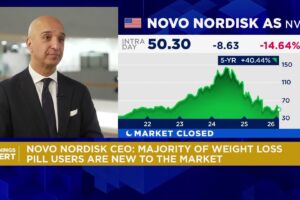

Earlier this month, a consensus emerged among Democratic contenders that Big Tech should be broken up. Kamala Harris feels that “we have to seriously take a look” at dismantling the monopolies of the likes of Facebook FB. Joe Biden pitched in that such a move is “something we should take a really hard look at.”
Even staunch Republicans like Ted Cruz and Josh Hawley are making similar noises about the subject. But leading the pack is Elizabeth Warren, who has promised to oversee a breakup of Big Tech if she wins the presidency. Warren’s proposals transcend contemporary antitrust law’s focus on pricing.
Instead, she argues that breaking up such tech majors would encourage innovation and promote competition by allowing startups to flourish. This goes a step beyond earlier proposals which call for greater scrutiny of mergers in the tech arena. However, it is to be seen whether such a proposal is politically feasible for a likely Democrat successor to President Trump.
<p class="canvas-atom canvas-text Mb(1.0em) Mb(0)–sm Mt(0.8em)–sm" type="text" content="Greater Scrutiny on the Big Five” data-reactid=”25″>Greater Scrutiny on the Big Five
The top five U.S. tech majors are also the five most valuable companies in America. And over the years, the level of antitrust scrutiny has only increased for them. In the late 1990s, Microsoft MSFT was scrutinized for the same. More recently, huge fines were slapped on Alphabet GOOGL by European antitrust regulators.
In contrast, U.S. regulators have taken a favorable view of the incredible growth of Big Tech. Better smart phones, free online services and cheap e-commerce are believed to be the favorable outcomes of their growing power and influence. This has led U.S. regulators to believe that the success of tech majors has had a positive effect on competitive markets.
However, it is equally true that tech majors have been crushing suppliers as well as nascent competition. In the process, they have employed a range of questionable tactics, as was witnessed during Amazon’s AMZN ruthless price wars against its competitors.
<p class="canvas-atom canvas-text Mb(1.0em) Mb(0)–sm Mt(0.8em)–sm" type="text" content="The situation has been quite similar when it comes to Apple’s AAPL authoritative management of its app stores and Facebook’s questionable data security practices, which resulted in numerous public scandals. Of the big five, Microsoft and Facebook carry a Zack Rank #2 (Buy). You can see the complete list of today’s Zacks #1 Rank (Strong Buy) stocks here.” data-reactid=”29″>The situation has been quite similar when it comes to Apple’s AAPL authoritative management of its app stores and Facebook’s questionable data security practices, which resulted in numerous public scandals. Of the big five, Microsoft and Facebook carry a Zack Rank #2 (Buy). You can see the complete list of today’s Zacks #1 Rank (Strong Buy) stocks here.
<p class="canvas-atom canvas-text Mb(1.0em) Mb(0)–sm Mt(0.8em)–sm" type="text" content="Is Warren’s Proposal Mostly Symbolic?” data-reactid=”30″>Is Warren’s Proposal Mostly Symbolic?
In March, Warren proposed that Amazon, Facebook and Alphabet should be broken up. Meanwhile, major restrictions should be imposed on how Apple and Microsoft go about doing business.
According to her plan, a company with annual global revenues in excess of $25 billion which “offers to the public an online marketplace, an exchange, or a platform for connecting third parties” should be designated as “platform utility.” This entity would be prevented from owning any participants on such a platform.
The core business models of Apple and Microsoft would remain largely unaffected by such regulations. But it would have severe major implications for the three other members of this elite group. At the same time, the present day structure of Microsoft’s Xbox Store and Apple’s iOS App Store would be rendered invalid.
But Warren has cautiously omitted all references to the kind of impact these new regulations would have on Big Tech. This is believed to be proof of the fact that her proposal is mostly symbolic rather than practical.
<p class="canvas-atom canvas-text Mb(1.0em) Mb(0)–sm Mt(0.8em)–sm" type="text" content="Conclusion” data-reactid=”35″>Conclusion
Warren’s proposal to regulate Big Tech has found favor among other Democratic contenders. However, the strong link between leading Democrats and Silicon Valley giants make such regulations unviable in the real world. Further, her proposals run counter to conventional antitrust laws which focus on pricing and consumer interest.
This is why it is unreasonable to expect a future White House to go so far as to attempt to break up big tech. However, a successful Democratic bid for the presidency would bring such companies under considerable regulatory scrutiny. This would have major implications for users, suppliers and competitors.
<p class="canvas-atom canvas-text Mb(1.0em) Mb(0)–sm Mt(0.8em)–sm" type="text" content="More Stock News: This Is Bigger than the iPhone! ” data-reactid=”38″>More Stock News: This Is Bigger than the iPhone!
It could become the mother of all technological revolutions. Apple sold a mere 1 billion iPhones in 10 years but a new breakthrough is expected to generate more than 27 billion devices in just 3 years, creating a $1.7 trillion market.







